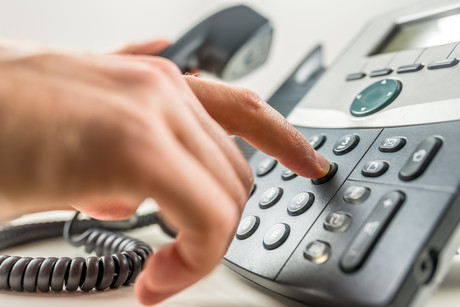ACCC urges caution on nbn scams

Australians have been warned to be vigilant about an nbn scam designed to gain access to their money and personal information.
According to the ACCC, the scammers are impersonating nbn and nearly $28,000 has been reported lost across 316 complaints this year.
“Scammers are increasingly using trusted government brands like nbn to trick people into falling for scams. Their goal is always to either get hold of your money or personal information,” ACCC Deputy Chair Delia Rickard said.
The three common scams reported to Scamwatch that involve scammers impersonating nbn are:
- Signing victims up to fake accounts — scammers will ring victims to ‘connect’ them to the nbn network for a low price. They will often demand payment be made through iTunes gift cards.
- Gaining remote access to computers — scammers pretending to be from nbn will call a victim with claims there are problems with their computer. The scammer uses this ruse to gain remote access to the victim’s computer to steal valuable personal information, install malicious software or demand payment to fix ‘problems’ they have discovered.
- Phishing — scammers impersonating nbn will call victims to steal valuable personal information like their name, address, Medicare number, licence number. The scammer may tell the victim they are entitled to a new router, for example, and say they need these personal details to confirm the victim’s identity.
“Australians over 65 are particularly vulnerable to this scam with fraudsters using phone calls to target their victims,” Rickard said.
“nbn will never phone you out of the blue to try to sign you up to a service over its network. nbn is a wholesaler, meaning they don’t sell direct to the public. If you get an unsolicited call like this, it’s a big red flag that you’re dealing with a scammer.
“nbn will also never call you to remotely ‘fix’ a problem with your computer or to request personal information like your Medicare number or your bank account numbers. Don’t listen to the reasons they give you for needing this information.
“Finally, if someone ever asks you to pay for a service using iTunes gift cards, it is 100% a scam. Legitimate businesses, especially those like nbn, will never ask you to pay for anything in this way.”
People can protect themselves in the followings ways:
- If in doubt about contact from someone saying they are from nbn trying to sell an internet or phone service, hang up the phone and call the retail service provider to check if the person calling is a fraud.
- It is only possible to connect to the nbn network by purchasing a plan through a phone and internet service provider. People can go to nbn’s website to check if their home or business address is able to connect to the nbn network and see which phone and internet providers are available in their area.
- People should never give personal, credit card or online account details over the phone unless they made the call and the phone number came from a trusted source.
- Never give an unsolicited caller remote access to a computer.
Those who think they may have provided bank account or credit card details to a scammer should contact their bank or financial institution immediately.
Fujitsu establishes security consulting division
Fujitsu's new digital security consulting division will help organisations prepare for and...
Unstoppable Domains joins GlobalBlock initiative
Web3 domain name service provider Unstoppable Domains has joined the GlobalBlock initiative to...
AI adoption surging in the enterprise
The use of generative AI and other tools within the enterprise is rapidly increasing, which is...







